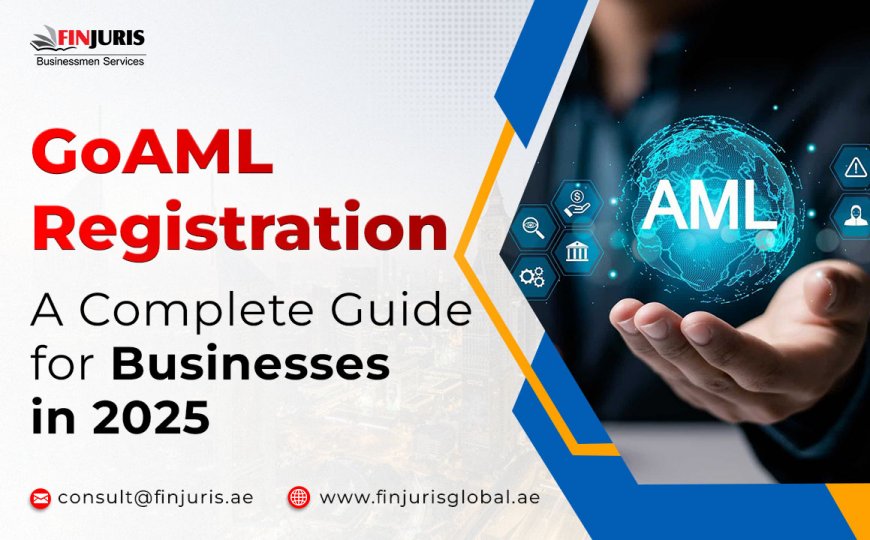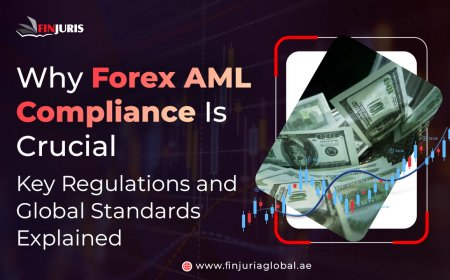GoAML Registration in the UAE: A No-Nonsense Guide for 2025
Stay compliant in 2025 with our step-by-step GoAML registration guide for UAE businesses. Avoid fines and protect your trade license.

If you run a business in the UAE and someone’s mentioned GoAML registration, you might have had one of two reactions:
-
A vague nod, pretending you know exactly what that means.
-
A quick Google search followed by a small wave of panic.
Don’t worry, you’re not alone. We’ve met plenty of business owners, from gold traders in Deira to real estate agents on Sheikh Zayed Road, who didn’t realise they needed to be on the GoAML portal until an urgent email from the regulator landed in their inbox.
In 2025, the UAE isn’t messing around when it comes to anti-money laundering (UAE AML compliance). The Financial Intelligence Unit (FIU UAE) is using GoAML as a key weapon in the fight against financial crime, and if your business falls into one of the covered sectors, registration isn’t optional. It’s the law.
So… what is GoAML anyway?
Think of GoAML as a secure online gateway between your business and the UAE’s financial intelligence authorities. Its software is developed by the United Nations Office on Drugs and Crime (UNODC) and is used by FIUs around the world.
In the UAE, it’s run by the FIU under the Central Bank. Its main job? To let you file Suspicious Transaction Reports (STRs), Suspicious Activity Reports (SARs), and sometimes Cash Transaction Reports (CTRs) in a standardised way that regulators can actually use.
It’s not there to make your life harder (even if it sometimes feels like it). It’s there to make sure suspicious patterns in financial activity are spotted early — before they turn into something more serious.
Who actually needs to register?
This is where some confusion comes in. Not every café, small shop, or start-up in the UAE needs a FIU GoAML account. The law targets certain “at-risk” industries — the ones most likely to be used (willingly or not) to move suspicious funds.
Here’s the short version:
Financial institutions (banks, money exchange houses, investment companies, insurance firms, crypto companies) — you already know you’re on the list.
DNFBPs (Designated Non-Financial Businesses and Professions) — this is where many get caught off guard:
-
Real estate brokers and agents
-
Dealers in precious metals and stones (gold, diamonds, high-value jewellery)
-
Lawyers and notaries who handle big transactions for clients
-
Accountants, auditors, and bookkeepers who manage large fund movements
-
Company formation agents and corporate service providers
Example:
Last year, we worked with a small jewellery shop in Sharjah that sold a gold set for AED 120,000 cash to a walk-in customer. Perfectly legal sale. But the shop had never registered on GoAML. They didn’t report the cash transaction, and when the FIU found out during a routine sector sweep… let’s just say the fine stung more than the gold price drop that month.
Why registration matters more in 2025
Sure, there’s the “avoid a fine” part. But it’s bigger than that.
-
Protect your business — If a dodgy transaction slips through and you haven’t been reporting, you could end up under investigation.
-
Maintain your trade license — Repeat non-compliance can lead to suspension or even cancellation.
-
Win client trust — Larger corporate clients often check that you’re compliant before they’ll work with you.
-
Keep the UAE’s reputation clean — The country’s FATF compliance affects investment flows. If we all follow the rules, the whole market benefits.
And here’s a practical point: if you register and keep your filings up to date, you’re building a paper trail that could protect you later. If an investigation happens, you can show you acted in good faith and did your part.
The step-by-step GoAML registration process (UAE)
I’ve walked dozens of clients through this, so here’s the practical breakdown — minus the jargon.
Step 1 – Get your paperwork in order
Don’t open the portal yet. Get your documents ready first:
-
Valid trade license (check the expiry date!)
-
Proof of incorporation or registration certificate
-
Passport + Emirates ID for whoever will be the authorised GoAML user
-
Proof of your business address (Ejari, tenancy contract, utility bill)
-
An authorisation letter naming the person(s) who’ll use the portal
-
Company stamp ready for signing
Trust me, 90% of delays happen because people start the online process before gathering this.
Step 2 – Create an eServices account
Go to the UAE FIU’s eServices page. You’re not on GoAML yet — this is like getting the keys to the building.
Step 3 – Register your organisation
Fill out the online form. Pick the correct sector — this matters. If you’re a jewellery trader and you pick “Other,” your approval will sit in limbo for weeks.
Step 4 – Wait for FIU review
They’ll check your documents and details. If all’s well, you’ll get the green light. This can take anywhere from a few days to two weeks.
Step 5 – Add your users
Once the organisation is approved, create accounts for your compliance officer (and ideally a backup).
Step 6 – Start using the GoAML portal
Log in, explore, and maybe even run a test submission so you’re not figuring it out in the middle of a real suspicious transaction case.
Common mistakes that slow you down
We have seen them all:
-
Submitting expired Emirates IDs
-
Forgetting to sign or stamp the authorisation letter
-
Using a personal email address for official registration
-
Not checking the spam folder for FIU emails (this happens a lot)
-
Mixing up the eServices account and the GoAML account
Staying compliant after registration
Here’s the thing: registration is just the starting point. The real work is ongoing.
-
File STRs/SARs quickly — Don’t “wait to see how it plays out.” The law says you must report as soon as suspicion arises.
-
File CTRs — In the UAE, that’s any cash transaction over AED 55,000.
-
Keep your records — Five years minimum. Digital or paper is fine, as long as it’s accessible.
-
Train your team — They should know what red flags look like in your industry.
Example: A property buyer insists on using a third party’s bank account “for convenience.” That’s a red flag. If your team knows this, they’ll flag it before it becomes your headache.
Penalties: what happens if you don’t comply
They’re not bluffing. The penalties are real and have been applied.
-
Fines from AED 50,000 to AED 5 million
-
Temporary license suspension
-
Public “naming and shaming” on official sites
-
In extreme cases, criminal prosecution
In 2024, several high-profile property firms in Dubai were fined because they failed to report large suspicious deals. Their names ended up in the news and in this city, reputation damage can hurt more than the fine itself.
Tips for making the GoAML portal work for you
-
Log in at least once a month, even if you have nothing to report - it keeps you familiar with the system.
-
Have more than one registered user - holidays and sick days happen.
-
Bookmark the FIU’s circulars - they often contain small but important updates.
-
Keep an internal “decision log” for every case you consider suspicious (or not). If regulators ever ask, you can show your reasoning.
Quick FAQ
Do all UAE businesses have to register?
No — only those in the listed sectors that have been mentioned above.
Can I register without a compliance officer?
No. You need someone responsible for filings. A compliance officer would be the best for this situation.
How long does it take?
If your documents are ready and correct, it should take around 1–2 weeks.
Is GoAML used worldwide?
Yes, but each country’s FIU runs its own version.
Final word
Look, GoAML registration isn’t glamorous. Nobody’s going to frame your certificate of compliance and hang it in the office. But in the UAE in 2025, it’s one of those things you do because the cost of not doing it is far greater.
If you fall under FIU UAE registration rules, treat this like renewing your trade license, a non-negotiable part of doing business here. Get it done, keep your filings up to date, and sleep better knowing you’re on the right side of UAE AML compliance.
The rules aren’t going away. If anything, they’ll get stricter. And between businesses and clients, it’s a lot easier to register now than to explain to an inspector why you didn’t. GoAML is not just a registration you make for the sake of it, but it is an absolute necessity to remain compliant. Hence businesses need to quickly rush and get themselves registered on the GoAML application. Stay compliant, stay safe.
What's Your Reaction?















